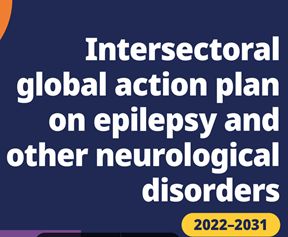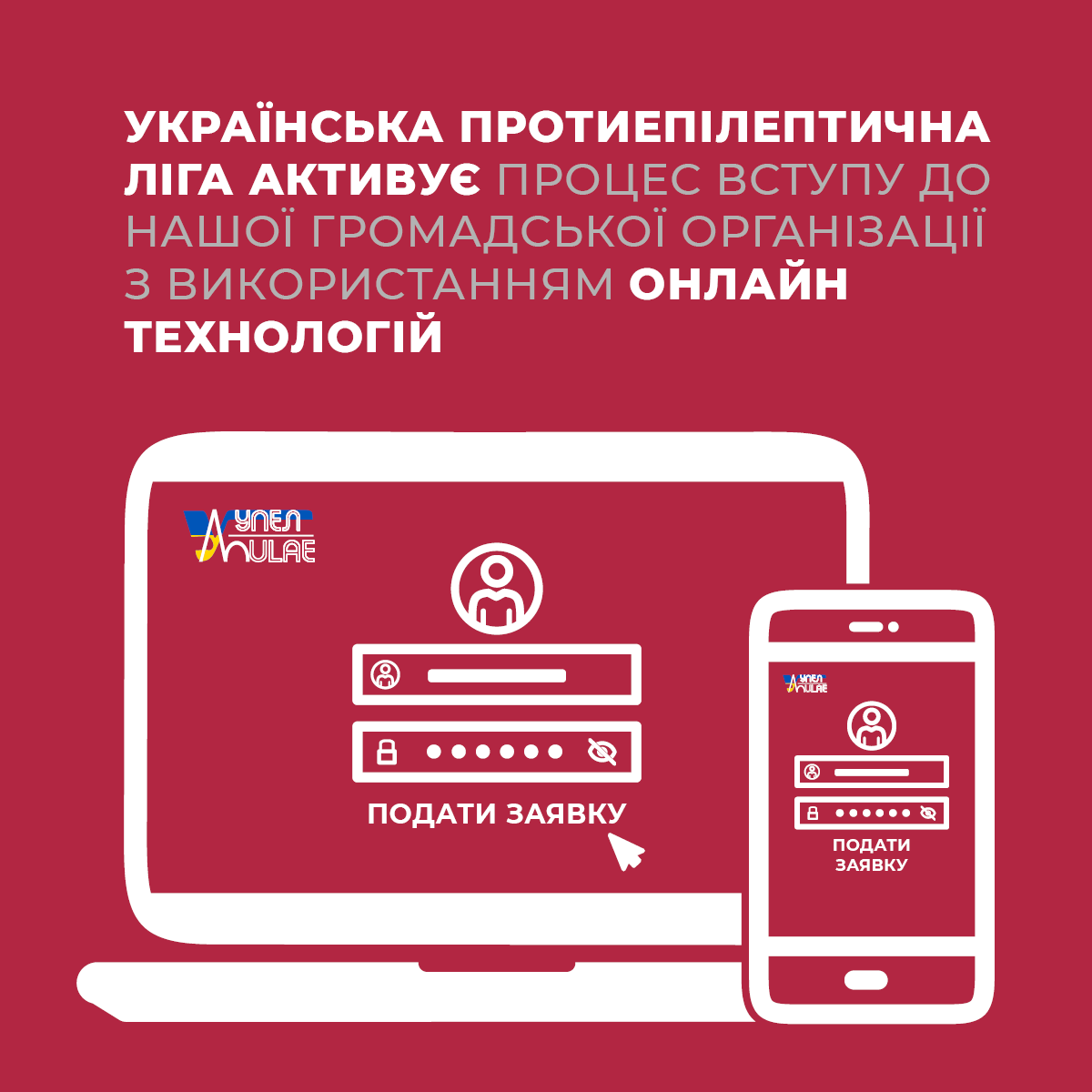Alistair Wardrope та Markus Reuber, Академічне відділення неврології, університет Шеффілда, Королівська лікарня Халламшира, Glossop Road, Sheffield, S10 2JF
Зміна клімату - і спричинене нею марнотратне, несправедливе споживання викопного палива - є проблемою кожного. У статті "Вибір редактора" з поточного випуску журналу "Seizure", яка містить свідчення членів Комісії МПЕЛ з питань зміни клімату та епілепсії (КЗК) (1), чітко зазначено, що це стосується і тих, хто живе і працює з епілепсією та іншими розладами з нападами. Зміна клімату впливає на здоров'я людини безліччю способів - через прямий вплив на теплові хвилі та екстремальні погодні явища; через непрямий вплив на природні системи, такі як зміна землекористування, поширення інфекційних захворювань та їх переносників; а також через порушення соціальної динаміки, перетинаючись з іншими політичними, соціальними та економічними детермінантами здоров'я, посилюючи нестачу продовольства і води, політичну нестабільність і вимушену міграцію (2,3). Залежність від викопного палива, яка в переважній більшості спричиняє зміну клімату, також впливає на здоров'я більш безпосередньо - від погіршення стану довкілля на місцевому рівні та порушення життєдіяльності громад у місцях видобутку до 3,6 мільйона щорічних смертей, спричинених забрудненням атмосферного повітря внаслідок спалювання викопного палива (4).
Зміна клімату - це проблема кожного. Через це може здатися, що це нічия проблема. Інструменти медичної етики добре пристосовані для роботи з індивідуальними рішеннями між лікарем і пацієнтом, прийнятими в один момент часу, з мінімальними наслідками для тих, хто ще не перебуває в кабінеті лікаря. Вони менш пристосовані для вирішення проблем, спричинених кумулятивним впливом дій багатьох людей у всіх аспектах їхнього особистого та професійного життя, наслідки яких можуть відчувати люди за багато миль - або років - від них. Захист здоров'я людей від кліматичної та екологічної кризи вимагає від нас не просто запитати, за що ми особисто відповідальні, а побачити, що наші звичні механізми розподілу обов'язків дають збої, і запитати, як ми, колективно, можемо виправити ці збої (5). Звіти КЗК МПЕЛ запрошують нас усіх до дій - індивідуальних, інституційних і політичних.
Кліматичні та екологічні кризи впливають на людей з епілепсією на кожному кроці. Економіка, заснована на викопному паливі, негативно впливає на основні причини епілепсії в усьому світі: 20,1% ризику інсульту пов'язано із забрудненням навколишнього повітря (6), дорожньо-транспортні травми є другою найпоширенішою причиною черепно-мозкової травми в усьому світі (7), а зростання температурної мінливості та посушливості призводить до збільшення захворюваності та поширення менінгіту (8,9), а також потенційно інших інфекційних факторів, що сприяють розвитку епілепсії (10). Люди, які вже живуть з епілепсією, можуть мати специфічні вразливості, такі як термочутливі напади (10). Менш безпосередньо, але, ймовірно, більш суттєво, кліматичні порушення соціальних систем можуть мати згубний вплив на профілактику та лікування епілепсії, від порушення постачання та зберігання протиепілептичних препаратів (10) до вимушеної міграції, спричиненої посухою або конфліктом (11), яка створює високі ризики розвитку епілепсії (та інших епілептичних розладів, таких як функціональні/дисоціативні напади) через інфекцію, недоїдання або травматичний досвід - напади є основною причиною звернення до лікарів у таборах для вимушених переселенців (12).
Причини цих екологічних детермінант здоров'я мозку і їх наслідки розподілені нерівномірно, що посилює існуюче нерівність, що зачіпає людей з епілепсією. Багаті споживачі та великі промислові підприємства на глобальній півночі в переважній більшості є рушійними силами зміни клімату, тоді як малі острівні держави та населення Африки на південь від Сахари більш вразливі до прямих та непрямих наслідків зміни клімату на здоров'я (13,14). Багаті країни «Великої двадцятки» (G20) продовжують субсидувати галузь, що працює на викопному паливі, причому кожен долар субсидії призводить, за оцінками, до витрат на охорону здоров'я в розмірі 6 доларів (4). Країни, найбільш вразливі до наслідків зміни клімату для здоров'я, - це ті, де люди з епілепсією вже є найбільш вразливими до шкоди: частка людей в країнах з низьким рівнем доходу, які не отримують базового лікування епілепсії (основна «прогалина в лікуванні епілепсії»), за оцінками, становить 86,9% (15).
Жодна індивідуальна дія не може пом'якшити масштаб і складність цих загроз для здоров'я. Реагування на зміну клімату вимагає інституційних та політичних дій на місцевому, національному та міжнародному рівнях. Однак існуючі політичні дії недостатні для адекватного реагування на загрозу, оскільки поточна політика залишає світ на шляху до підвищення температури поверхні Землі на 2,7°C до 2100 року (16). Ті, кому доручено працювати заради здоров'я людей з епілептичними розладами, не можуть бути самозаспокоєними; створення таких груп, як КЗК МПЕЛ, дає можливість медичним працівникам вживати колективних заходів. Ці дії можуть відбуватися на індивідуальному, громадському, інституційному, національному та міжнародному рівнях.
Члени КЗК підкреслили переваги рослинного харчування для здоров'я та планети. Такий перехід не лише зменшує вуглецеву інтенсивність продуктів харчування, але й може запобігти понад 10 мільйонам неінфекційних захворювань на рік, а також зменшити причини епілепсії, такі як інсульт (17). Але для отримання цих переваг потрібні не лише індивідуальні зміни, а й перехід продовольчих систем від інтенсивного індустріального сільського господарства до диверсифікованих, агроекологічних методів. Медичні працівники можуть підтримати цей перехід, створюючи альтернативні простори для виробництва та обміну продуктами харчування у своїх громадах, наприклад, продовольчі кооперативи лікарів загальної практики; або ж вимагаючи від своїх медичних установ забезпечувати персонал і пацієнтів їжею місцевого виробництва на основі рослинних продуктів (18).
Так само транспорт, що працює на викопному паливі, становить значну частину індивідуальних і глобальних викидів вуглецю; але, розглядаючи види транспорту як питання індивідуального вибору, ми нехтуємо ситуативними факторами, які підтримують або перешкоджають різним варіантам вибору - і на які медичні працівники також можуть впливати. Пандемія продемонструвала наявність альтернатив академічній нормі частих далеких перельотів для міжнародних конференцій; зараз є більше ресурсів, ніж будь-коли раніше, для сприяння низьковуглецевому обміну інформацією у спосіб, який також є більш доступним для бідніших і маргіналізованих спільнот (19). Контекстно-чутливе використання телемедицини може зменшити викиди, пов'язані з відвідуванням закладів охорони здоров'я (20-22).
Працівники охорони здоров'я також можуть виступати за ширші політичні зміни. Індустрія викопного палива продовжує підривати справедливий перехід до низьковуглецевої економіки; протидіяти цьому можна, відмовившись від участі в компаніях, що підживлюють кліматичну кризу, і виступаючи за нерозповсюдження викопного палива (4, 23).
Зміна клімату - це проблема кожного, але ніхто не може вирішити її індивідуально. Дії щодо зміни клімату повинні бути колективними – на всіх рівнях соціальної організації. Працівники охорони здоров'я можуть використовувати існуючі форми колективної організації для підтримки справедливого переходу до більш стійкого суспільства – у статті «Вибір редактора» цього тому наведено лише невеликий перелік причин, чому вони повинні і як можуть це робити.
(1) Aledo-Serrano A. Taking action on climate change: testimonials and position statement from the International League Against Epilepsy Climate Change Commission. Seizure. 2023;In Press.
(2) Pörtner HO, Roberts DC, Tignor MMB, et al., eds. Climate Change 2022: Impacts, Adaptation and Vulnerability. Contribution of Working Group II to the Sixth Assessment Report of the Intergovernmental Panel on Climate Change. IPCC; 2022.
(3) Watts N, Adger WN, Agnolucci P, et al. Health and climate change: policy responses to protect public health. The Lancet. 2015;386(10006):1861-1914. doi:10.1016/S0140-6736(15)60854-6
(4) Beagley J. Cradle to Grave: The Health Harms of Fossil Fuel Dependence and the Case for a Just Phase-Out. Global Climate and Health Alliance; 2022. Accessed February 11, 2023. https://climateandhealthalliance.org/wp-content/uploads/2022/07/Cradle-To-Grave-Fossil-Fuels-Brief.pdf
(5) Wardrope A, Reuber M. Diagnosis by Documentary: Professional Responsibilities in Informal Encounters. Am J Bioeth. 2016;16(11):40-50. doi:10.1080/15265161.2016.1222008
(6). Feigin VL, Stark BA, Johnson CO, et al. Global, regional, and national burden of stroke and its risk factors, 1990–2019: a systematic analysis for the Global Burden of Disease Study 2019. The Lancet Neurology. 2021;20(10):795-820. doi:10.1016/S1474-4422(21)00252-0
(7). James SL, Theadom A, Ellenbogen RG, et al. Global, regional, and national burden of traumatic brain injury and spinal cord injury, 1990–2016: a systematic analysis for the Global Burden of Disease Study 2016. The Lancet Neurology. 2019;18(1):56-87. doi:10.1016/S1474-4422(18)30415-0
(8). Akanwake JB, Atinga RA, Boafo YA. Effect of climate change on cerebrospinal meningitis morbidities and mortalities: A longitudinal and community-based study in Ghana. PLOS Climate. 2022;1(8):e0000067. doi:10.1371/journal.pclm.0000067
(9). Chen J, Jiao Z, Liang Z, et al. Association between temperature variability and global meningitis incidence. Environment International. 2023;171:107649. doi:10.1016/j.envint.2022.107649
(10). Gulcebi MI, Bartolini E, Lee O, et al. Climate change and epilepsy: Insights from clinical and basic science studies. Epilepsy & Behavior. 2021;116:107791. doi:10.1016/j.yebeh.2021.107791
(11). Abel GJ, Brottrager M, Crespo Cuaresma J, Muttarak R. Climate, conflict and forced migration. Global Environmental Change. 2019;54:239-249. doi:10.1016/j.gloenvcha.2018.12.003
(12). Hallab A, Sen A. Epilepsy and psychogenic non-epileptic seizures in forcibly displaced people: A scoping review. Seizure. 2021;92:128-148. doi:10.1016/j.seizure.2021.08.004
(13). Ritchie H, Roser M, Rosado P. CO₂ and Greenhouse Gas Emissions. Our World in Data. Published online May 11, 2020. Accessed February 11, 2023. https://ourworldindata.org/co2-emissions
(14). Edmonds HK, Lovell JE, Lovell CAK. A new composite climate change vulnerability index. Ecological Indicators. 2020;117:106529. doi:10.1016/j.ecolind.2020.106529
(15). Kwon CS, Wagner RG, Carpio A, Jetté N, Newton CR, Thurman DJ. The worldwide epilepsy treatment gap: A systematic review and recommendations for revised definitions – A report from the ILAE Epidemiology Commission. Epilepsia. 2022;63(3):551-564. doi:10.1111/epi.17112
(16). Romanello M, Napoli CD, Drummond P, et al. The 2022 report of the Lancet Countdown on health and climate change: health at the mercy of fossil fuels. The Lancet. 2022;400(10363):1619-1654. doi:10.1016/S0140-6736(22)01540-9
- Willett W, Rockström J, Loken B, et al. Food in the Anthropocene: the EAT–Lancet Commission on healthy diets from sustainable food systems. The Lancet. 2019;393(10170):447-492. doi:10.1016/S0140-6736(18)31788-4
- Jochelson K. Sustainable Food and the NHS. The King’s Fund; 2005.
- Successful research, less flying - FlyingLess. Accessed February 11, 2023. https://flyingless.de/en/
- Blenkinsop S, Foley A, Schneider N, Willis J, Fowler HJ, Sisodiya SM. Carbon emission savings and short-term health care impacts from telemedicine: An evaluation in epilepsy. Epilepsia. 2021;62(11):2732-2740. doi:10.1111/epi.17046
- Purohit A, Smith J, Hibble A. Does telemedicine reduce the carbon footprint of healthcare? A systematic review. Future Healthc J. 2021;8(1):e85-e91. doi:10.7861/fhj.2020-0080
- Courtney E, Blackburn D, Reuber M. Neurologists’ perceptions of utilising tele-neurology to practice remotely during the COVID-19 pandemic. Patient Educ Couns. 2021;104(3):452-459. doi:10.1016/j.pec.2020.12.027
- Howard C, Beagley J, Eissa M, et al. Why we need a fossil fuel non-proliferation treaty. The Lancet Planetary Health. 2022;6(10):e777-e778. doi:10.1016/S2542-5196(22)00222-4
Alistair Wardrope and Markus Reuber, Academic Neurology Unit, University of Sheffield, Royal Hallamshire Hospital, Glossop Road, Sheffield, S10 2JF
Climate change – and the profligate, inequitable, fossil fuel-driven consumption that causes it – is everyone’s problem. The Editor’s Choice from the current volume of Seizure is an article with testimonies from the members of the ILAE Epilepsy Climate Change Commission (CCC) (1) makes clear that this includes those living and working with epilepsy and other seizure disorders. Climate change affects human health in myriad ways – through its direct effects on heat waves and extreme weather events; through its indirect effects on natural systems, such as changing land use, and distribution of infectious diseases and their vectors; and through disruption of social dynamics – intersecting with other political, social, and economic determinants of health to exacerbate food and water insecurity, political instability, and forced migration (2,3). The fossil fuel dependence that overwhelmingly causes climate change also affects health more directly – from local environmental degradation and community disruption at the point of extraction, to the 3.6 million annual deaths attributable to ambient air pollution from fossil fuel combustion (4).
Climate change is everyone’s problem. That can make it seem like no-one’s problem. The tools of healthcare ethics are well equipped for dealing with individual decisions between clinician and patient, made at a single time point, with minimal consequences for those not already in the consultation room. They are less able to engage with problems caused by the cumulative effects of many people’s actions, in all aspects of their personal and professional lives, whose consequences may be felt by people miles – or years – away. Protecting human health from climate and environmental crisis demands that we not just ask what we, personally, are responsible for; it requires seeing that our usual mechanisms for distributing responsibilities are failing, and so asking how we, collectively, can rectify these failures (5). The accounts of the ILAE CCC invite us all to take action – individually, institutionally, and politically.
Climate and environmental crises affect people with epilepsy at every point. The fossil fuel-driven economy has negative impacts on the biggest causes of epilepsy worldwide: 20.1% of stroke risk is attributable to ambient air pollution (6), motor vehicle road injuries are the second most common cause of traumatic brain injury globally (7), and increasing temperature variability and aridity is increasing incidence and spread of meningitis (8,9), and potentially other infectious precipitants of epilepsy (10). Those already living with epilepsy may have specific vulnerabilities, such as heat-sensitive seizures (10). Less directly, but probably more significantly, climatic disruption of social systems is liable to have damaging impacts on epilepsy prevention and management, from disruption of supply and storage of anti-seizure medications (10), to drought- or conflict-driven forced migration (11), which poses high risks of developing epilepsy (and other seizure disorders such as functional/dissociative seizures) due to infection, malnutrition, or traumatic experience – seizures are the leading cause for medical referral in camps for forcibly displaced persons (12).
The causes of these environmental determinants of brain health and their effects are unevenly distributed, in ways that exacerbate existing inequities affecting people with epilepsy. Wealthy consumers and large industries in the global North overwhelmingly drive climate change while small island nations and Sub-Saharan African populations are more vulnerable to the direct and indirect health effects of climate change (13,14). Wealthy G20 nations continue to subsidise the fossil fuel industry, with each dollar of subsidy causing an estimated 6 dollars of health costs (4). Those countries most vulnerable to the health effects of climate change are those where people with epilepsy are already most vulnerable to harm, with the proportion of people in low-income countries not receiving basic epilepsy treatment (the primary ‘epilepsy treatment gap’) being estimated at 86.9% (15).
No individual action can begin to mitigate the scale and complexity of these health threats. Responding to climate change requires institutional and political action at local, national, and international levels. However, existing political actions are insufficient to address the threat adequately, with current policies leaving the world on track to surface temperature rises of 2.7C by 2100 (16). Those entrusted with working for the health of people with seizure disorders cannot be complacent; the formation of groups like the ILAE CCC provide opportunities for health workers to take collective action. These actions can take place at individual, community, institutional, national and international levels.
CCC members highlighted the health and planetary benefits of plant-based diets. Such a shift not only reduces the carbon intensity of food; it could also avert over 10 million diseases per year from non-communicable diseases, and reduce causes of epilepsy like stroke (17). But reaping these benefits requires not just individual change, but also shifting food systems from intensive industrial agriculture to diversified, agroecological methods. Health workers can support this transition by creating alternative spaces for food production and sharing in their communities, like GP food co-operatives; or pressuring their healthcare institutions to provide staff and patients with locally-sourced, plant-based meals (18).
Similarly, fossil fuel-powered transport comprises a large portion of individual and global carbon emissions; but framing transport modes as an issue of individual choice neglects situational factors that support or discourage different choices – and which health workers can also influence. The pandemic has demonstrated the availability of alternatives to the academic norm of frequent long-haul flights for international conferences; more resources are available than ever before to facilitate low-carbon information sharing in ways that are also more accessible to poorer and more marginalised communities (19). Context-sensitive use of telemedicine can reduce emissions associated with healthcare attendances (20-22).
Health workers can also advocate for wider political change. The fossil fuel industry continues to undermine a just transition to a low-carbon economy; resistance can be offered through divesting from the companies fuelling the climate emergency, and advocating for fossil fuel non-proliferation (4,23).
Climate change is everyone’s problem, but none can solve it individually. Action on climate change needs to be collective – at all levels of social organisation. Health professionals can use existing forms of collective organisation to support a just transition to a more sustainable society – this volume’s Editor’s Choice gives just a small sample of reasons why they should, and how they could.
(1) Aledo-Serrano A. Taking action on climate change: testimonials and position statement from the International League Against Epilepsy Climate Change Commission. Seizure. 2023;In Press.
(2) Pörtner HO, Roberts DC, Tignor MMB, et al., eds. Climate Change 2022: Impacts, Adaptation and Vulnerability. Contribution of Working Group II to the Sixth Assessment Report of the Intergovernmental Panel on Climate Change. IPCC; 2022.
(3) Watts N, Adger WN, Agnolucci P, et al. Health and climate change: policy responses to protect public health. The Lancet. 2015;386(10006):1861-1914. doi:10.1016/S0140-6736(15)60854-6
(4) Beagley J. Cradle to Grave: The Health Harms of Fossil Fuel Dependence and the Case for a Just Phase-Out. Global Climate and Health Alliance; 2022. Accessed February 11, 2023. https://climateandhealthalliance.org/wp-content/uploads/2022/07/Cradle-To-Grave-Fossil-Fuels-Brief.pdf
(5) Wardrope A, Reuber M. Diagnosis by Documentary: Professional Responsibilities in Informal Encounters. Am J Bioeth. 2016;16(11):40-50. doi:10.1080/15265161.2016.1222008
(6). Feigin VL, Stark BA, Johnson CO, et al. Global, regional, and national burden of stroke and its risk factors, 1990–2019: a systematic analysis for the Global Burden of Disease Study 2019. The Lancet Neurology. 2021;20(10):795-820. doi:10.1016/S1474-4422(21)00252-0
(7). James SL, Theadom A, Ellenbogen RG, et al. Global, regional, and national burden of traumatic brain injury and spinal cord injury, 1990–2016: a systematic analysis for the Global Burden of Disease Study 2016. The Lancet Neurology. 2019;18(1):56-87. doi:10.1016/S1474-4422(18)30415-0
(8). Akanwake JB, Atinga RA, Boafo YA. Effect of climate change on cerebrospinal meningitis morbidities and mortalities: A longitudinal and community-based study in Ghana. PLOS Climate. 2022;1(8):e0000067. doi:10.1371/journal.pclm.0000067
(9). Chen J, Jiao Z, Liang Z, et al. Association between temperature variability and global meningitis incidence. Environment International. 2023;171:107649. doi:10.1016/j.envint.2022.107649
(10). Gulcebi MI, Bartolini E, Lee O, et al. Climate change and epilepsy: Insights from clinical and basic science studies. Epilepsy & Behavior. 2021;116:107791. doi:10.1016/j.yebeh.2021.107791
(11). Abel GJ, Brottrager M, Crespo Cuaresma J, Muttarak R. Climate, conflict and forced migration. Global Environmental Change. 2019;54:239-249. doi:10.1016/j.gloenvcha.2018.12.003
(12). Hallab A, Sen A. Epilepsy and psychogenic non-epileptic seizures in forcibly displaced people: A scoping review. Seizure. 2021;92:128-148. doi:10.1016/j.seizure.2021.08.004
(13). Ritchie H, Roser M, Rosado P. CO₂ and Greenhouse Gas Emissions. Our World in Data. Published online May 11, 2020. Accessed February 11, 2023. https://ourworldindata.org/co2-emissions
(14). Edmonds HK, Lovell JE, Lovell CAK. A new composite climate change vulnerability index. Ecological Indicators. 2020;117:106529. doi:10.1016/j.ecolind.2020.106529
(15). Kwon CS, Wagner RG, Carpio A, Jetté N, Newton CR, Thurman DJ. The worldwide epilepsy treatment gap: A systematic review and recommendations for revised definitions – A report from the ILAE Epidemiology Commission. Epilepsia. 2022;63(3):551-564. doi:10.1111/epi.17112
(16). Romanello M, Napoli CD, Drummond P, et al. The 2022 report of the Lancet Countdown on health and climate change: health at the mercy of fossil fuels. The Lancet. 2022;400(10363):1619-1654. doi:10.1016/S0140-6736(22)01540-9
- Willett W, Rockström J, Loken B, et al. Food in the Anthropocene: the EAT–Lancet Commission on healthy diets from sustainable food systems. The Lancet. 2019;393(10170):447-492. doi:10.1016/S0140-6736(18)31788-4
- Jochelson K. Sustainable Food and the NHS. The King’s Fund; 2005.
- Successful research, less flying - FlyingLess. Accessed February 11, 2023. https://flyingless.de/en/
- Blenkinsop S, Foley A, Schneider N, Willis J, Fowler HJ, Sisodiya SM. Carbon emission savings and short-term health care impacts from telemedicine: An evaluation in epilepsy. Epilepsia. 2021;62(11):2732-2740. doi:10.1111/epi.17046
- Purohit A, Smith J, Hibble A. Does telemedicine reduce the carbon footprint of healthcare? A systematic review. Future Healthc J. 2021;8(1):e85-e91. doi:10.7861/fhj.2020-0080
- Courtney E, Blackburn D, Reuber M. Neurologists’ perceptions of utilising tele-neurology to practice remotely during the COVID-19 pandemic. Patient Educ Couns. 2021;104(3):452-459. doi:10.1016/j.pec.2020.12.027
- Howard C, Beagley J, Eissa M, et al. Why we need a fossil fuel non-proliferation treaty. The Lancet Planetary Health. 2022;6(10):e777-e778. doi:10.1016/S2542-5196(22)00222-4




